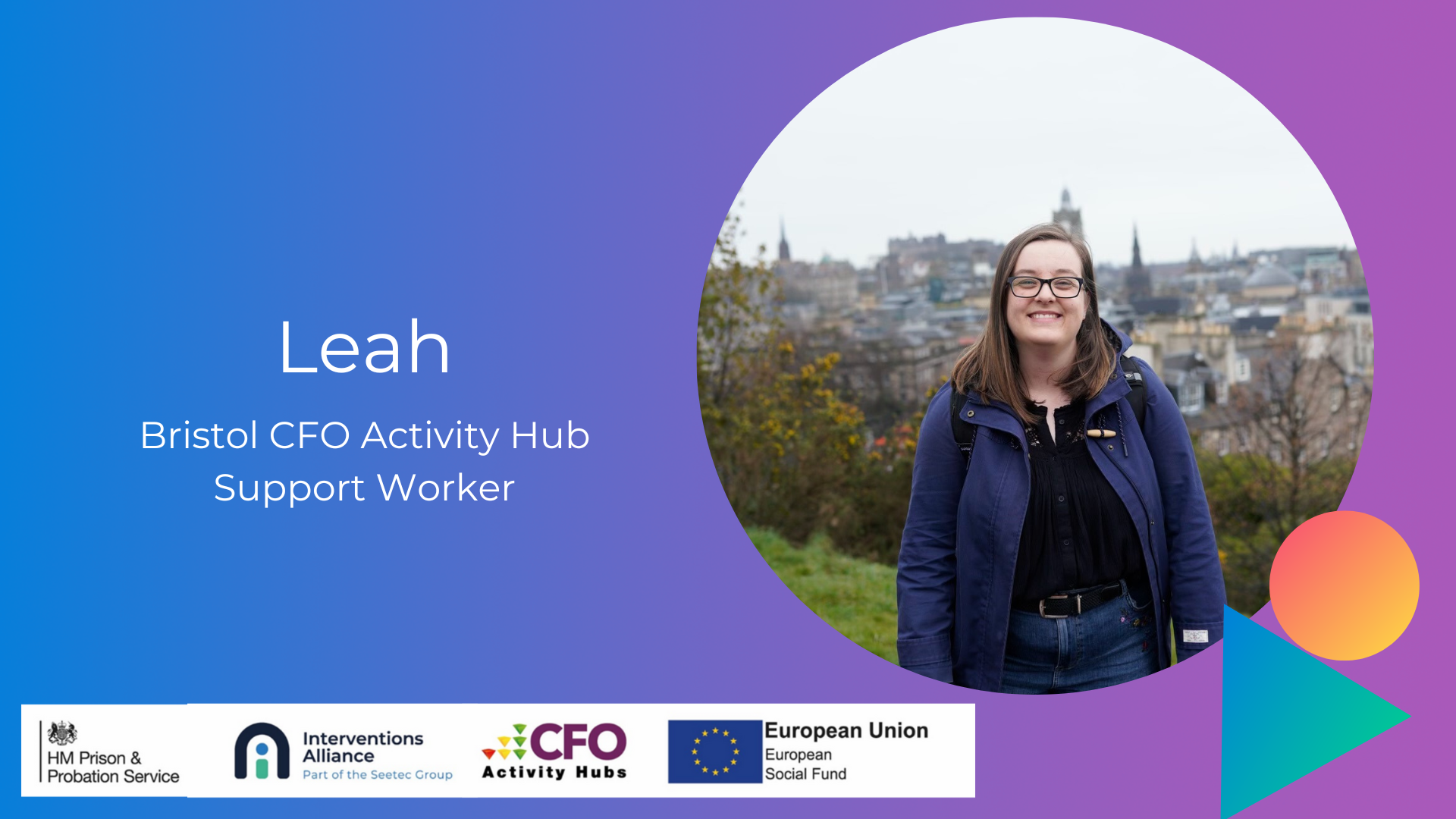Neurodiversity Celebration Week challenges misconceptions and stereotypes around neurological differences.
We’re proud to be supporting this week to champion one of our core values; ‘celebrating everyone’s uniqueness.’ As part of this, we’re shining a spotlight on one of our support workers at the Bristol CFO Activity Hub, Leah.
Leah was recently recognised for her dedicated work to support our neurodivergent participants at the 2024 CFO Celebration Awards, where she was chosen as the winner of the Neurodiversity award.
- Tell us a little bit about yourself and what led you into working in the justice sector?
“I studied Psychology at college and attended a criminology conference to find out more. This led to me studying Criminology at undergraduate and postgraduate level, learning about different aspects of the justice system, with a dominant interest in prisons.
“My justice career started by working for charities in the prison service, supporting families and loved ones visiting prisoners, before moving into the prison supporting prisoners with resettlement.
“I now work at the Bristol CFO Activity Hub, supporting rehabilitation outside of the prison gate and as I found when working in custody, I often saw the same faces coming in and out of the gate so wanted to be a part of the support they received after release.”
- What do you enjoy the most about working with and supporting those who are neurodivergent?
“Neurodivergent people make up a higher proportion of those in the justice sector than those in the general population, and I find it interesting to see how neurodiverse barriers can lead to involvement in the justice system.
“Understanding and adapting to these needs is something that the participants haven’t experienced and they haven’t felt seen or considered, so it’s positive to offer them that feeling of being seen and understood as a whole person rather than a sum of parts.”
- How do you adapt your delivery and approach to support different neurodivergent needs?
“This adaptation is often practical, utilising tools like fidget spinners and providing pens and paper to doodle on or to make notes on.
“It can also involve adapting communication style, for example slowing down speech, making things more literal and giving specific dates and deadlines to follow.
“Mostly, I provide encouragement and acknowledgement that if the neurodivergent needs mean that the individual can’t do things as quickly as they thought they could, it’s still okay and is still really good progress.”
- Can you give us an example of a time you have worked with someone who is neurodivergent and they have shown positive progression?
“A participant with Autism Spectrum Disorder (ASD) and Attention Deficit Hyperactivity Disorder (ADHD) came to us not being able to socialise effectively and often had panic attacks when there were too many people around.
“I supported them with fidget toys when things got overwhelming, and we provided them with a separate space to go to when things were too busy. I also supported this participant with some work around their social anxieties and recognising social cues.
“They eventually became a positive influence in the hub, running our participant led sketching sessions and supporting new participants to feel welcome in the hub. They’ve now finished probation and have started volunteering to support others who have experienced the same barriers and issues with substances.”
- What is the Bristol CFO Activity Hub is doing to support those who are neurodivergent?
“We make fidget toys and scrap paper readily available and have various spaces that the participants can use if they are feeling overwhelmed.
“We also repainted our workshop room walls to be a softer, more soothing colour to be more calming for people who need it.”
If you’d like to know more about how our CFO Activity Hubs are supporting people to build a brighter future, click here: CFO Activity Hubs – Interventions Alliance | Interventions Alliance


